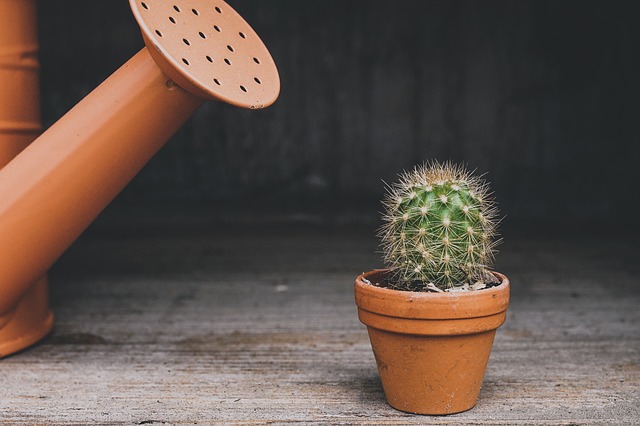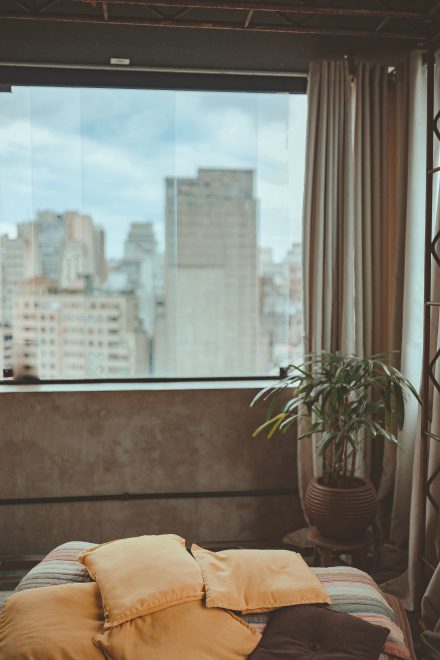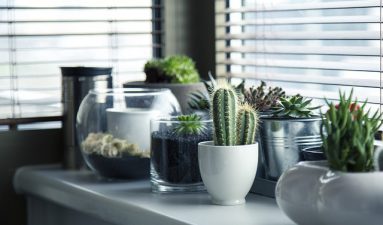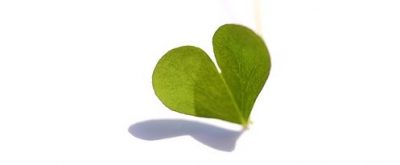Big businesses are blaming millenials for “killing” lucrative markets: breakfast cereals, chain restaurants, and home ownership are some. But big business needs to recognize that the millenial generation’s preferences have changed to healthier, less consumer-oriented, and more sustainable ways of living. Rather than blaming young adults entering their prime earning years for destroying markets, it’s far smarter to understand their needs and cater to them.
Dealing with stress – and millenials’ stress is considered to be at an all-time high – is a real need. Here come houseplants to help take the pressure off. Read my post on the calming effects of plant care.
How does it work? A study done by the Journal of Physiological Anthropology sums it up:
“Our results suggest that active interaction with indoor plants can reduce physiological and psychological stress compared with mental work. This is accomplished through suppression of sympathetic nervous system activity and diastolic blood pressure and promotion of comfortable, soothed, and natural feelings.”
In other words, pottering around with plants makes you relax and feel good.

Millenials are busier accumulating experiences than collecting things – putting their money into travel rather than property. For those who don’t expect to stay in one job or apartment for more than a few years, houseplants are easier to raise than pets (or children). Supermarkets offer easy-grow, hard-to-kill plants, but savvy millenials are buying their monsteras and snake plants from online outlets like Etsy, eBay and Amazon. They’re bookmarking sites with columns on plant care advice, and shopping in boutique plant shops that in some neighborhoods, are springing up like, well, mushrooms.
Enthusiastic owners follow each other’s Instagram feeds and cultivate, so to speak, online relationships with other indoor plant owners, harvesting advice and support. The popular #plantsofinstagram hashtag attracts some 2.7 million posts. Millenials often give their plants names and invest so much emotional energy into them that it’s generated the phrase “plant parents.”
Scenting a good business opportunity, some houseplant lovers have opened shops of their own. Millenial shoppers bent on greening their homes and offices can not only buy plants, but also consult the vendor about caring for them, for a goodly consultation fee. Plant shop owners also create online communities to serve shoppers with advice on how best to grow their green darlings.

The millenial’s desire to impact the ecology as little as possible is driving some shops to create packaging that’s more environment-friendly. And that can’t be bad.
The demand for new, exciting varieties outstrips the supply and raises prices. The traditional chain of growers-wholesalers-brokers-and-retailers moves slowly because of distance (many popular houseplants are farmed in Latin America or Africa) and outdated means of communication. While the houseplant trend grows, millenials are willing to pay well – up to $200 – for rare plants like the variegated monstera deliciosa.
An interesting twist on the plant-purchase phenomenon is potential use of technology on a supremely natural product. Bloomberg reports: “Digimarc Corp., which makes invisible identifiers for a wide range of products that are more reliable and efficient than traditional bar codes, wants to embed its digital watermarks onto plant tags, labels and other types of packaging. Customers scan them with their phones and call up care advice, videos and additional information on the plant. Such innovations could help modernize a supply chain that Digimarc CEO Bruce Davis deems ‘archaic.’”
Florida grower Matt Metzler says of the rising demand for house plants, “I’ve never seen anything like this.”
It’s reminiscent of the 17th-century tulip mania in Europe, when Dutch merchants made and lost fortunes handling the fragile luxury-item flower bulbs. But unless millenial’s stress levels go markedly down in today’s competitive, economically precarious world, houseplants will be a healthy market item for a long time to come.




